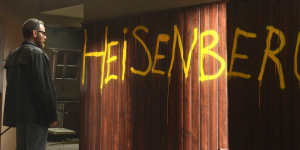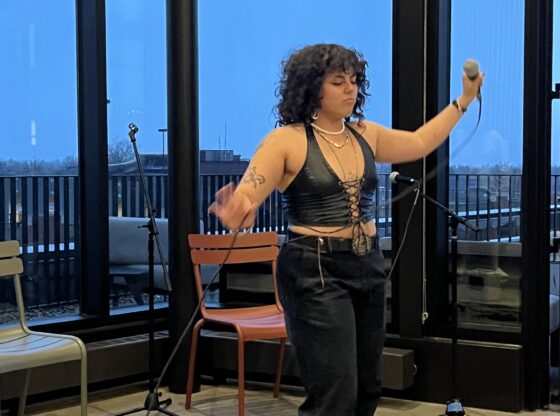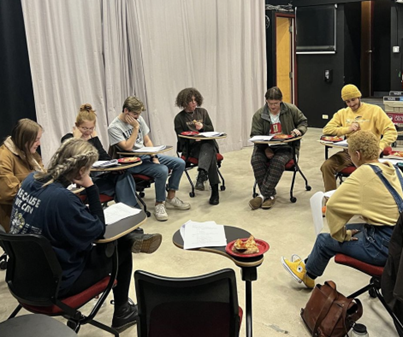From 2008 to 2013, “Breaking Bad” has enticed the minds of millions across the country. With the previous episode, “Granite Slate,” leaving a lot of unanswered questions and hazy plot lines, it was unclear if the finale was going to be able to live up to the prestige of the preceding seasons. Entitled “Felina,” the closing episode was a fulfilling conclusion to the epic series. The word is an anagram for the word ‘finale’ and a potential allusion to the chemical makeups of blood, meth and tears.
With a whirlwind fifth season that left nearly every episode in a cliffhanger, there were shocking twists, tearful phone calls and a lot of shooting. Really, a lot of shooting. Walter White (Bryan Cranston, “Argo”), the chemistry teacher turned meth king, made a lot of his decisions in a vain attempt to ensure his family’s monetary gain after spending most of his money on his cancer treatments. Obviously, things do not work out in his favor since White is a high school chemistry teacher who does not have the equipment to make meth, the networking to sell his product or the knowledge of how to evade other meth lords and the DEA.

Walter White, played by Bryan Cranston, visits his old home that has been vandalized by an unkown party on the series finale of “Breaking Bad,” which aired on AMC on Sunday, September 29.
The preceding episode left the viewers in a lurch—White is in New Hampshire, far from his Albuquerque-based family, while Jesse Pinkman (Aaron Paul, “The Last House on the Left”), White’s ex-partner, is imprisoned by a group of neo-Nazis who have just brutally murdered the last person he loves. A previous plot line, between two of White’s previous business partners, that seemed to have been completely resolved was brought forth again at the culmination of “Granite Slate,” causing slight confusion of the course the last episode would take. Where would White’s wife and children go with their money taken by the DEA and facing threats from dangerous people?
Amazingly enough, Vince Gilligan, the creator of “Breaking Bad” was able to manipulate the plot into a thrilling conclusion that neatly sewed up every intrigue. The writing worked to enhance the very believability of the show. Each character has been so well-written that their choices can be traced back to past experiences in previous episodes. One example is White—throughout the show, he has made horrendous choices that have resulted in many deaths and the furthering of his meth empire, but he had an imaginary line in the sand that he never crossed, even if he implied he would to get his way.
The entirety of “Breaking Bad” is a potential reaction that an American family might have when faced with the same circumstances as White. Would most of the viewers make the same decision as White? No, probably not. But most of the viewers did not miss out on a company worth millions of dollars in his or her youth to friends who now deny his or her very involvement in its creation. White almost did break his code and turn bad, but the reminder of his family and the repercussions they might face always brought him back from the brink of destruction.
The real question, the question that has taken five seasons to answer, is what was White’s true intention? It could easily be a glorified journey of ensuring his family’s future- but that is not the real message Gilligan wished to convey. As depicted in the final seconds of the episode and White’s confrontation with his wife, it was about White finally being recognized for his life’s work. Before the blue meth, before Heisenberg, he was an insignificant chemistry teacher to a group of insolent high schoolers who probably would not go on to do great things. The power he drew from becoming a drug kingpin was not out of maliciousness, but rather a man’s distorted attempt at controlling at least one aspect of his fate as his body fails him.
Pinkman, in addition, is equally motivated by his desires, though his past was vastly different than White’s. He grew up in a family very similar to White’s own, but was turned out a young age after multiple problems with drugs. These drug addictions would consume him fully until the overdose death of his girlfriend, resulting in Pinkman searching for help. Since this moment, he was been looking for a way out of the meth industry, but is repeatedly forced back in by White, and eventually, the neo-Nazis who capture him for his chemistry knowledge. Pinkman has been utterly destroyed and no longer sees a way out of his position, letting whatever happens to him in his cell hole happen. White is the only person who is going to be able to save Pinkman, but with White’s returning cancer and his own family to worry about, it is anybody’s guess whether or not he will.
The thrilling conclusion can be encapsulated in a single word: fantastic. In true “Breaking Bad” glory, the show finished with a bang and an image that will be imprinted in viewers’ thoughts for hours, even days, after its conclusion.











